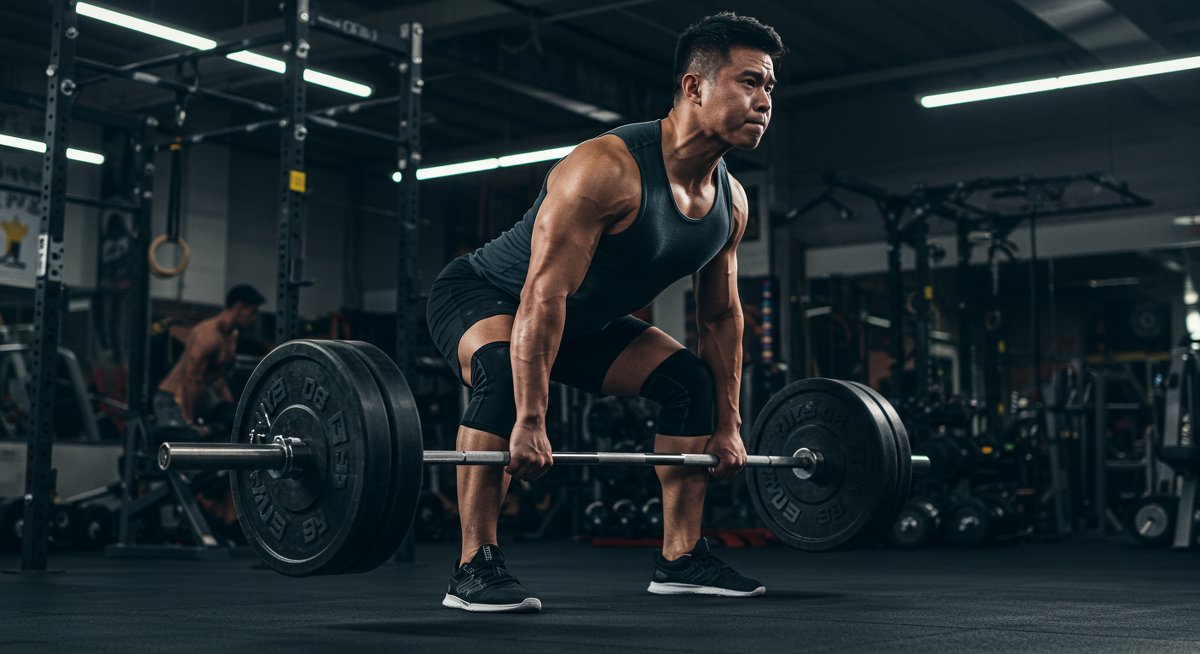Why This Reddit Post Got Me Thinking
I came across this Reddit post in r/loseit that really struck a chord. The poster was talking about how the narrative of "lift weights to lose weight" has kind of taken over, and how cardio often gets a bad rap. It made me think about my own fitness journey and how easily we can get caught up in trends, forgetting the fundamentals.
The original poster (OP) mentioned the shift away from the old-school advice of endless cardio and starvation diets, which is definitely a good thing. But they also pointed out that demonizing cardio altogether might be throwing the baby out with the bathwater. Their core argument was simple: cardio, HIIT, and even just walking all contribute to weight loss, reduce stress, improve insulin sensitivity, and boost dopamine. All of those things are super helpful when you're trying to lose weight.
I've seen this happen myself. People get so focused on the latest fitness craze that they forget the basics. They think they need some complicated routine or expensive equipment to see results. But sometimes, the simplest things are the most effective. This whole conversation sparked my interest because it highlights the importance of a balanced approach and challenges some of the common misconceptions about weight loss.

Here's What Really Went Down in the Cardio vs. Lifting Debate
The heart of the Reddit post was a challenge to the idea that lifting weights is the only way to lose weight. The OP argued that while building muscle is beneficial, it doesn't magically melt fat away. They correctly pointed out that an extra kilogram of muscle only burns a small number of additional calories per day – not enough to make a significant difference on its own.
What the OP was getting at is that cardio burns calories, plain and simple. Whether it's running, HIIT, or even just a brisk walk, you're expending energy and creating a calorie deficit. And a calorie deficit is crucial for weight loss. They also made a great point about the other benefits of cardio. It's not just about burning calories. It's about stress reduction, improved insulin sensitivity, and increased dopamine levels. These factors can all play a role in managing your weight and overall well-being.
The post also touched on the misleading nature of some fitness transformations. You know the ones – "I used to eat 1800 calories and was miserable, now I eat 2500 calories and look amazing!" The OP questioned the accuracy of those calorie counts and highlighted that these fitness models are likely doing a combination of lifting, cardio, and clean eating. It's not just about eating more calories; it's about the quality of those calories and how you're expending energy. The OP's final takeaway? Any form of movement helps. Lifting is great, swimming is great, walking is great. It's all about finding what works for you and sticking with it.
What This Means for YOUR Weight Loss Journey
So, what can we learn from this Reddit debate? For starters, it reinforces the idea that weight loss is multifaceted. It's not just about one type of exercise or one specific diet. It's about finding a balance that works for your body and your lifestyle. If you're someone who enjoys cardio, don't feel like you need to ditch it completely in favor of lifting weights. Cardio is a perfectly valid way to burn calories and improve your overall health.
However, it's equally important to recognize the benefits of strength training. Building muscle can help improve your metabolism, increase your strength and endurance, and improve your body composition. It's not just about losing weight; it's about building a healthier, stronger version of yourself. I know plenty of people who are scared of lifting because they think it'll make them "bulky," but that's a total myth, especially for women. Lifting weights can help you sculpt your body and build lean muscle mass.
The real takeaway here is that the best approach to weight loss is a combination of both cardio and strength training, along with a healthy diet. Think of it as a three-legged stool. If one leg is missing, the whole thing falls apart. If you're only doing cardio, you might lose weight, but you won't build much muscle. If you're only lifting weights, you might build muscle, but you might not burn as many calories. And if you're not eating a healthy diet, it's going to be tough to see results no matter what you do.
The Truth Nobody Wants to Admit About Exercise and Weight Loss
Let's be honest, the reality of weight loss is that it's often a slow and challenging process. There are plateaus, setbacks, and moments where you feel like giving up. That’s normal. What the Reddit post touched on, which is so important, is that sustainability is key. You can follow the most intense workout program or the strictest diet for a few weeks, but if you can't stick with it long-term, you're not going to see lasting results.
One of the biggest challenges people face is finding the time and motivation to exercise consistently. Life gets busy, and it's easy to let your workouts fall by the wayside. The Reddit OP was right: any form of movement helps. It doesn't have to be an hour-long gym session. It could be a 20-minute walk during your lunch break or a quick HIIT workout at home. The key is to find something you enjoy and can realistically fit into your schedule.
Another thing that nobody really acknowledges is how much diet matters. You can't outrun a bad diet. You can do all the cardio and lift all the weights you want, but if you're constantly eating processed foods, sugary drinks, and excessive amounts of calories, you're going to struggle to lose weight. What I mean by that is, it’s easy to underestimate how many calories you’re actually consuming. Mindful eating is so crucial – paying attention to portion sizes, reading food labels, and making healthy choices.
Making Fitness Work for YOUR Busy Life
Okay, so you're convinced that both cardio and strength training are important for weight loss. But how do you actually make it work when you're juggling work, family, and other responsibilities? One of the biggest challenges is time. We all have the same 24 hours in a day, but some of us just can’t seem to find the time to dedicate to long workouts. But I’ve got some ways to change that.
First, prioritize. Look at your schedule and identify areas where you can carve out some time for exercise. Maybe it means waking up 30 minutes earlier, using your lunch break for a quick workout, or cutting back on screen time in the evenings. Even small changes can make a big difference. If you are short on time, focus on high-intensity workouts that deliver maximum results in minimal time. HIIT workouts, circuit training, and compound exercises are all great options. You can get a full-body workout in just 20-30 minutes.
Another thing to consider is making exercise more convenient. If you don't have time to go to the gym, create a home workout space. You don't need a lot of equipment to get started. A few dumbbells, resistance bands, and a yoga mat can be enough. And with so many online workout videos available, you can find plenty of routines to follow from the comfort of your own home.

Actually Putting This Into Practice – Step-by-Step
Alright, let’s get practical. How do you actually incorporate both cardio and strength training into your weekly routine? Here's a step-by-step guide to get you started:
Step 1: Assess your current fitness level. If you're new to exercise, start slowly and gradually increase the intensity and duration of your workouts. There’s no shame in starting small. The goal is to build consistency. Step 2: Create a workout schedule. Aim for at least 150 minutes of moderate-intensity cardio or 75 minutes of vigorous-intensity cardio per week, along with two to three strength training sessions. Step 3: Choose activities you enjoy. If you hate running, don't force yourself to do it. Find cardio activities you find fun, like dancing, swimming, or biking. For strength training, experiment with different exercises and find what works for you.
Step 4: Focus on compound exercises. These are exercises that work multiple muscle groups at once, like squats, deadlifts, lunges, and push-ups. They're a great way to build strength and burn calories efficiently. Step 5: Listen to your body. Rest when you need to rest, and don't push yourself too hard, especially when you're just starting out. Overtraining can lead to injuries and burnout.
My Take on All This Fitness Noise
After all this, here's what I really think: the most important thing is to find a sustainable approach to fitness that works for you. Don't get caught up in the latest trends or feel pressured to follow a specific workout program. The best workout is the one you actually enjoy and can stick with consistently.
The Reddit OP was right – any form of movement helps. Whether it's cardio, strength training, or a combination of both, the key is to be active and make healthy choices. Building muscle is important, but it's not the only thing that matters. Cardio has its own unique benefits, and it shouldn't be dismissed.
Ultimately, weight loss is a journey, not a destination. There will be ups and downs, and it's important to be patient and kind to yourself. Don't compare yourself to others or get discouraged by setbacks. Just keep moving forward, one step at a time, and you'll eventually reach your goals. So get out there and find what works for you. Whether it's lifting weights, running, dancing, or just walking, find something you enjoy and make it a part of your life.